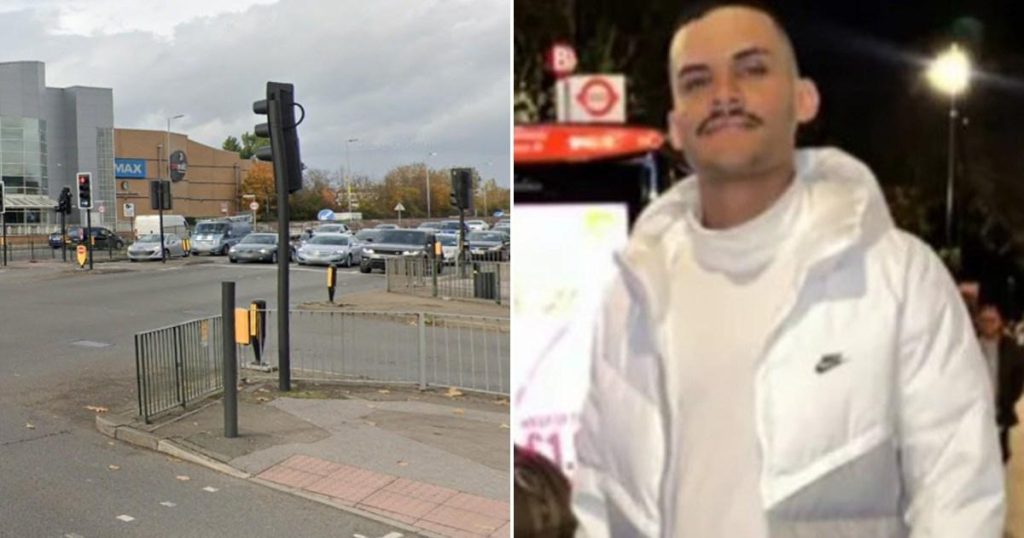Paragraph 1: The Incident and Initial Charges
On a fateful day in October 2023, tragedy struck in Enfield, north London, when a Metropolitan Police officer, Constable Ian Brotherton, collided with a moped rider while responding to an emergency call. Brotherton, driving at 47 mph in a 30 mph zone with lights and sirens activated, proceeded through a red light at the intersection of Southbury Road and Baird Road. This action resulted in a collision with 26-year-old Cristopher De Carvalho Guedes, who was turning right onto Baird Road. The impact of the crash left Guedes critically injured, and he was rushed to the hospital. Sadly, despite medical efforts, Guedes succumbed to his injuries and passed away the following day. The Independent Office for Police Conduct (IOPC) launched an investigation into the incident, which ultimately led to Brotherton being charged with causing death by dangerous driving.
Paragraph 2: The Plea and Court Proceedings
Brotherton appeared at the Old Bailey to face the charges. While he pleaded not guilty to causing death by dangerous driving, he did admit to the lesser charge of causing death by careless driving. This plea was accepted by the prosecution after consultations with the victim’s family, who reside in Brazil. Judge Nigel Lickley KC presided over the hearing and adjourned sentencing until February 27, 2024, to be heard by the Recorder of London. While Brotherton was granted continued bail, the judge imposed an interim driving ban, explicitly stating that this decision should not be interpreted as an indication of leniency and that all sentencing options, including immediate custody, remained on the table.
Paragraph 3: The Importance of Context in Emergency Responses
This tragic incident underscores the complexities and potential dangers inherent in emergency responses. While police officers are often required to make rapid decisions in high-pressure situations, it remains paramount that they exercise due care and consideration for public safety. The use of lights and sirens does not grant immunity from the rules of the road; rather, it serves as a warning to other road users to yield the right of way. The delicate balance between responding swiftly to emergencies and ensuring public safety must always be maintained. A thorough investigation and appropriate legal proceedings are crucial to determining the circumstances and assigning accountability in such cases.
Paragraph 4: The Impact on the Victim’s Family and the Community
The untimely death of Cristopher De Carvalho Guedes has undoubtedly left a void in the lives of his family and friends, particularly those residing in Brazil. Dealing with the sudden loss of a loved one is always challenging, but the added distance and complexities of international communication can exacerbate the grieving process. The fact that Guedes lost his life due to the actions of a police officer entrusted with public safety adds another layer of complexity to their grief. The incident likely also impacted the local Enfield community, serving as a stark reminder of the potential consequences of road accidents.
Paragraph 5: Accountability and Justice within Law Enforcement
Cases involving police officers accused of causing harm or death while on duty demand thorough and impartial investigations. The involvement of the IOPC in this case demonstrates the importance of independent oversight in ensuring accountability within law enforcement. Public trust in the police hinges on the principle that officers, like any other citizens, are subject to the law and will be held responsible for their actions. The judicial process, from the initial charges to the final sentencing, plays a critical role in upholding justice and maintaining public confidence in the legal system.
Paragraph 6: Reflecting on Road Safety and Emergency Response Protocols
This incident provides an opportunity for reflection and review of existing protocols related to emergency vehicle operation and road safety. Data analysis of similar incidents can inform training programs for emergency responders, emphasizing the importance of risk assessment and decision-making in high-pressure scenarios. Furthermore, public awareness campaigns can reinforce the importance of yielding to emergency vehicles while reminding all road users to prioritize safety and adhere to traffic laws. Ongoing dialogue between law enforcement agencies, policymakers, and the community is essential to creating safer roads for everyone.




